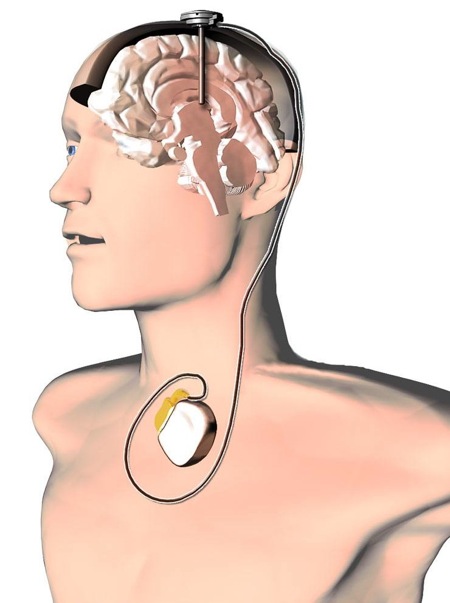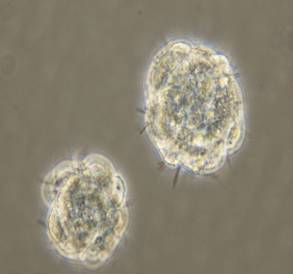Apr 1, 2011 | News

ROUND TABLE DISCUSSION
XIX NEUROBIOETHICS ENCOUNTER – 4TH SEMINAR
Brain Stimulation: Therapeutic Advances and Ethical-Legal Implications
April 1, 2011 – 16:30-19:00
Pontifical Athenaeum Regina Apostolorum, Via degli Aldobrandeschi, 190 Roma
AULA MAGNA

Greeting from the Rector of the Pontifical Athenaeum Regina Apostolorum
Prof. Padre Pedro Barrajón, LC
Moderator: introduction and contextualization of the theme
Dr. Alberto Carrara, LC
Deep Brain Stimulation: what science tells us about it
Prof. Massimo Gandolfini, Department Director of Neuroscience and Neurosurgery, Brescia, Italy
Deep Brain Stimulation: a brief story of a personal experience
Dr. Lucilla Bossi, Parkinson Italia
Stimulation of the vagus nerve in the treatment of depression
Riccardo Carrara, University of Padova, Italy
Deep Brain Stimulation and the protection of the fundamental right of psychic integrity
Prof. Alberto García
Director of the UNESCO Chair in Bioethics and Human Rights
Conclusion and discussion with the speakers
Dec 8, 2010 | News
 The European Neuroscience and Society Network organized two days of conferences (December 7-8) at the Said Business School of Oxford University . The event was titled “Neurosociety… What is it with the brain these days?” Prof. Alberto Garcia J.D. and Prof. Joseph Tham attended the gathering on behalf of the UNESCO Chair in Bioethics and Human Rights.
The European Neuroscience and Society Network organized two days of conferences (December 7-8) at the Said Business School of Oxford University . The event was titled “Neurosociety… What is it with the brain these days?” Prof. Alberto Garcia J.D. and Prof. Joseph Tham attended the gathering on behalf of the UNESCO Chair in Bioethics and Human Rights.
Professors were invited from around the globe to speak and interchange views and findings on the newly developing field of neurosciences and their impact on our society, hence the neologism “neurosociety”. Some of the most prominent figures included Prof. Steve Woolgar (Oxford University), Prof. Nikolas Rose (London School of Economics), and Professors Nigel Thrift and Gemma Calvert (Warwick University).
An overlapping theme was the aparition of “neuromarketing” onto the global scene. Speakers critically analyzed the role of the human brain in the academic, financial, commercial and political environments, and reflected upon how and why the brain is of powerful consequence.
Dec 3, 2010 | News

Ateneo Pontificio Regina Apostolorum
Institute of Science and Faith
UNESCO Chair in Bioethics and Human Rights
Neurobioethica Study and Research Group
Treating neurological diseases while respecting human life:
for an ethical use of stem cells

Third Interdisciplinary Seminar of the Neurobioethica Study and Research Group
Rome, Friday December 3rd, 2010, 4.00pm – 6:30pm
Free Admission, Simultaneous Translation
Introduction
Stem cells may one day cure severe degenerative diseases of the Central Nervous System such as Alzheimer’s Disease and Huntington’s Chorea. This new therapy is known as Regenerative Medicine where old or dying cells are replaced by young ones. Stem cells have different origins, although they have the same degree of pluripotency (that is they can transform themselves from progenitor cells into differentiated cells, the latter being found in various tissues). Stem cells can be obtained from the human embryos, adult tissues and cord blood or through the process of cloning. Finally, stem cells can be obtained by the reprogramming of adult cells (iPS). There are ethical implications involved in these choices, since stem cells obtained from an embryo imply the destruction of human life.
This third interdisciplinary seminar of the Neurobioethica Consortium addresses the research, production and use of stem cells in the treatment of neurological diseases. It aims to reaffirm the urgent need to defend and protect human life at its very early stage through an open dialogue between the empirical sciences and philosophical, ethical and juridical reflections. In addition, this seminar represents a unique opportunity to find and define new modalities for the integration of knowledge and its applications by fostering a holistic vision of the human embryo in contrast with a reductive interpretation (the embryo as “a clump of cells”) which carries with it significant ethical implications and practical consequences.
“However, new biomedical technologies which have been introduced in the critical area of human life and the family have given rise to further questions, in particular in the field of research on human embryos, the use of stem cells for therapeutic purposes, as well as in other areas of experimental medicine. These new questions require answers”. Dignitas Personae, Introduction, 2008.
In collaboration with:
- STOQ (Science Theology and the Ontological Quest)
- The John Templeton Foundation
- School of Philosophy
- School of Bioethics
Program
16:00 Welcome and opening remarks from the President of the Ateneo Pontificio Regina Apostolorum, Prof. Pedro Barrajon, L.C.
16:15 Opening address Maria Addolorata Mangione MD, PhD in Bioethics, Neurobioethica Study and Research Group, Ateneo Pontificio Regina Apostolorum
16:30 Stem Cells: Discovery, Classification and Application in Pharmaceutical Research and Regenerative Medicine Giovanni Gaviraghi C.E.O, Siena Biotech, S.p.A., Monte dei Paschi di Siena Foundation
17:00 Stem Cell and Restorative Therapy for CNS Disease Martin M. Bednar Executive Director and Global Clinical Lead for Neuro-Recovery/Regenerative Medicine and Alzheimer’s Disease Modification Projects, Pfizer Worldwide Development
17:30 Stem Cells: Ethical Dilemmas Gonzalo Miranda Full Professor, School of Bioethics, Ateneo Pontificio Regina Apostolorum
18:00 Vulnerable Brains, Vulnerable Cells? Human Rights and Stem Cells Research Alberto García Full Professor, School of Bioethics, Ateneo Pontificio Regina Apostolorum and Director, UNESCO Chair of Bioethics and Human Rights
18:30 Discussion, refreshments and conclusion of the workshop
Ateneo Pontificio Regina Apostolorum
Via degli Aldobrandeschi, 190
00163 Roma
Telephone: 06 66543854/06 66543934
Fax: 06 66527840
mastersf@upra.org
Oct 14, 2010 | News

Ateneo Pontificio Regina Apostolorum
Istituto Scienza e Fede
Cattedra Unesco di Bioetica e Diritti Umani
Gruppo di Neurobioetica
Neuroeconomia: una visione interdisciplinare dell’uomo nei processi decisionali
Neuroeconomics: interdisciplinarity in decision making
Secondo seminario interdisciplinare
del Gruppo di Neurobioetica

Roma, giovedì 14 ottobre 2010
ore 17:30-20:00
Ateneo Pontificio Regina Apostolorum, Roma
Aula Magna (2º piano)
Ingresso libero
Depliant del seminario (pdf)
Presentazione
La Neuroeconomia è una nuova disciplina con punti di contatto tra la neurologia e l’economia, la cui evoluzione potrà aiutare a comprendere anche il ruolo delle emozioni nelle scelte umane e individuare quali aree e circuiti neurali siano coinvolti nelle decisioni economiche. La neuroeconomia è un settore della ricerca neuroscientifica di spiccato carattere interdisciplinare. Essa rappresenta il punto d’incontro tra l’economia cognitiva e sperimentale, le neuroscienze, la microeconomia, la psicologia, l’epistemologia e la filosofia della mente. I contributi di tutte queste discipline e altre ancora, saranno utili, nel tempo, per comprendere come il cervello elabora le decisioni e come esse siano influenzate dalle opzioni disponibili, dalla componente emotiva del comportamento, dal contesto nel quale le persone vivono, dalle interazioni con altri individui, e come il tutto incida sul sistema etico/valoriale personale e sociale.
Questo seminario sulla Neuroeconomia rappresenta, per il Gruppo di Neurobioetica, un’opportunità per riaffermare la propria missione di ricerca di forme di “integrazione” dei saperi e delle loro applicazioni, evidenziando anche i rischi di un possibile riduzionismo. Le neuroscienze, complesse, affascinanti, dai risvolti etici a volte preoccupanti, hanno recentemente investito anche il settore dell’economica, nel tentativo di svelare i misteri di alcune inspiegabili decisioni individuali e collettive e, con esse, delle gravi crisi di sviluppo prodotte.
In collaborazione con:
- STOQ (Science Theology and the Ontological Quest)
- The John Templeton Foundation
- Facoltà di Filosofia
- Facoltà di Bioetica
Programma
17:30 Saluti e introduzione ai lavori
Adriana Gini
Dirigente medico neuroradiologo, Azienda Ospedaliera San Camillo – Forlanini; Coordinatrice del Gruppo di Neurobioetica
17:50 La prudenza e la neuroeconomia
P. Michael Ryan, L.C.
Professore Ordinario di Etica Sociale, Ateneo Pontificio Regina Apostolorum, Roma
18:20 Decidere in economia: un approccio integrato
Tommaso Cozzi
Professore di Economia, Ateneo Pontificio Regina Apostolorum e Università di Bari
18:50 Speranze e illusioni del neuroimaging in neuroeconomia
Francesco Orzi
Professore Ordinario di Neurologia, Università “La Sapienza”, Roma
19:20 Il modello bio-psico-sociale in neuro-economia
Alejandro Cañadas,
Assistant Professor of Economics, Mount St. Mary’s University, Emmitsburg, Maryland, USA
19:50 Dibattito, rinfresco, conclusione dei lavori
Tutte le relazioni saranno in lingua italiana
«La sfera economica non è né eticamente neutrale né di sua natura disumana e antisociale. Essa appartiene all’attività dell’uomo e, proprio perché umana, deve essere strutturata e istituzionalizzata eticamente». Benedetto XVI, Caritas in veritate, n.36



 The European Neuroscience and Society Network organized two days of conferences (December 7-8) at the Said Business School of Oxford University . The event was titled “Neurosociety… What is it with the brain these days?” Prof. Alberto Garcia J.D. and Prof. Joseph Tham attended the gathering on behalf of the UNESCO Chair in Bioethics and Human Rights.
The European Neuroscience and Society Network organized two days of conferences (December 7-8) at the Said Business School of Oxford University . The event was titled “Neurosociety… What is it with the brain these days?” Prof. Alberto Garcia J.D. and Prof. Joseph Tham attended the gathering on behalf of the UNESCO Chair in Bioethics and Human Rights.
